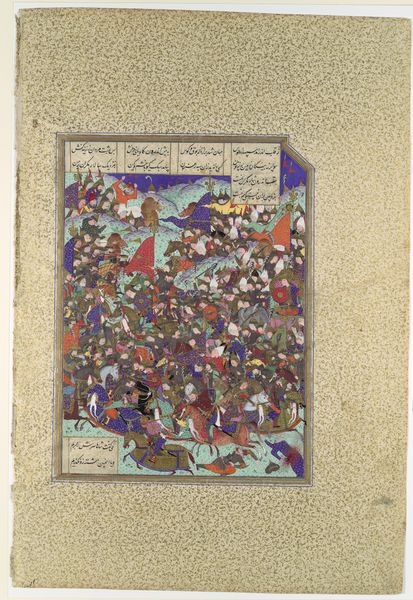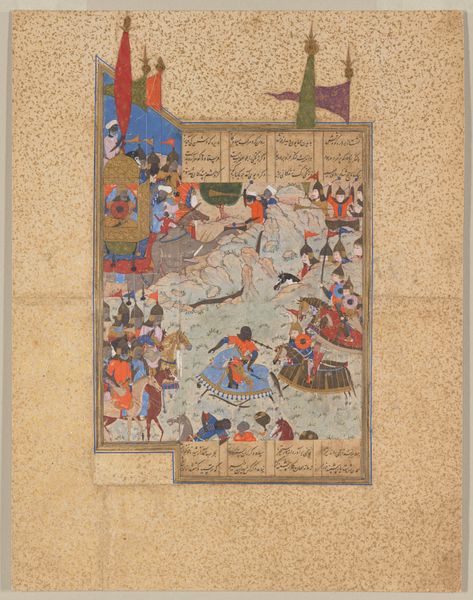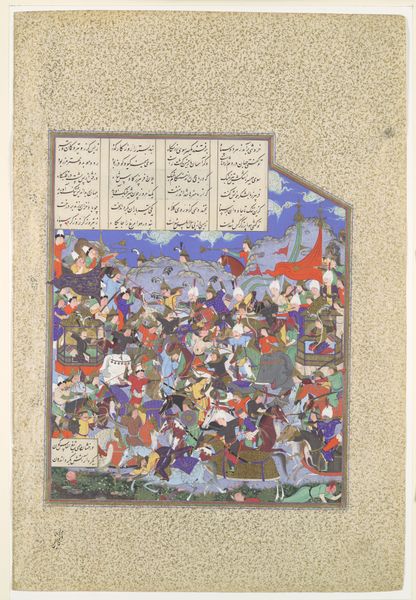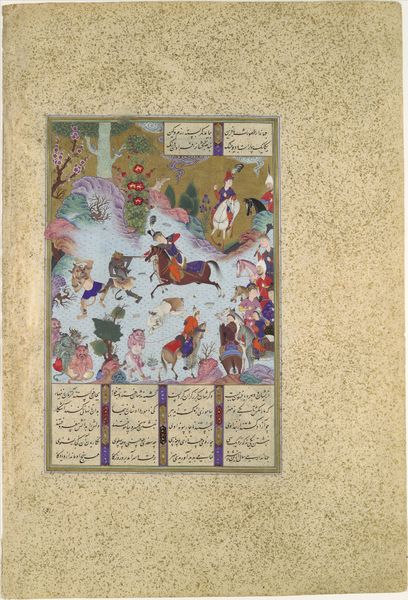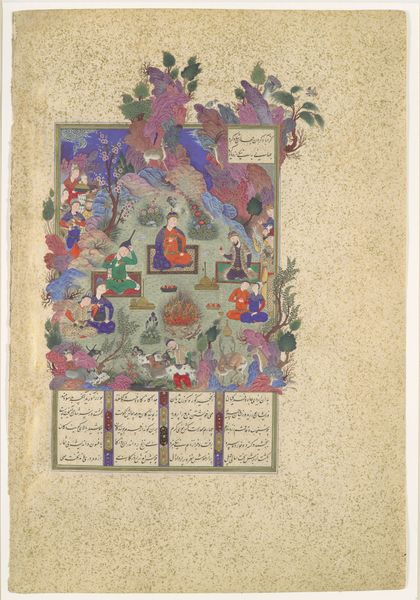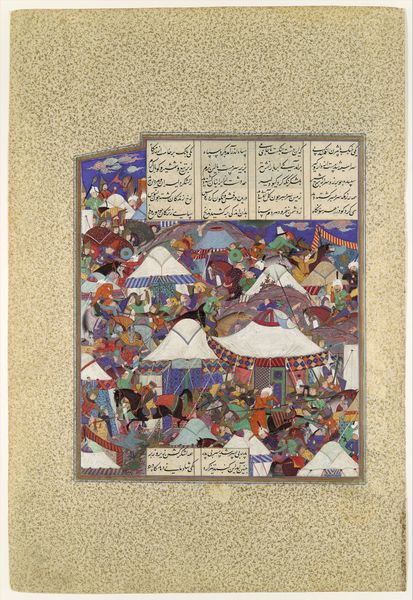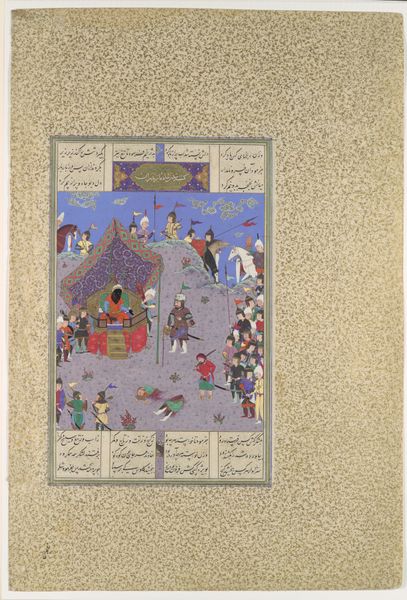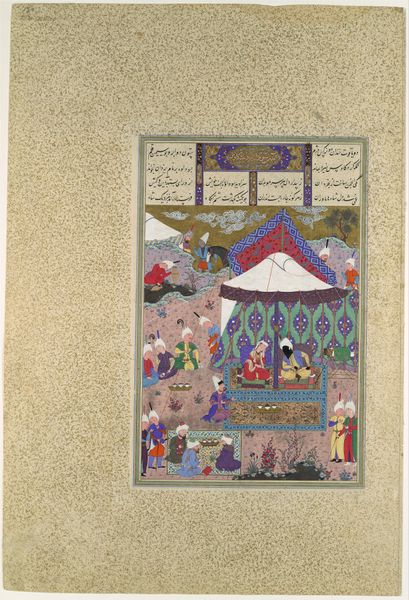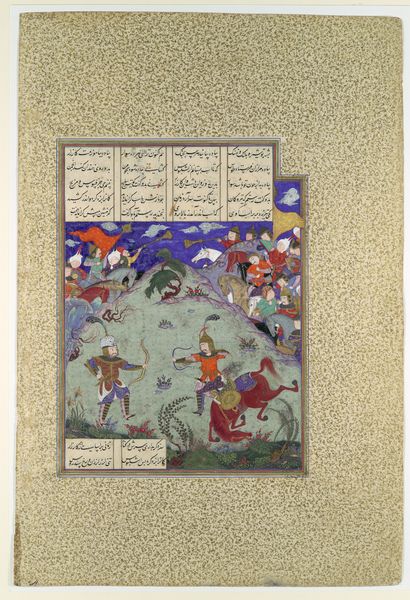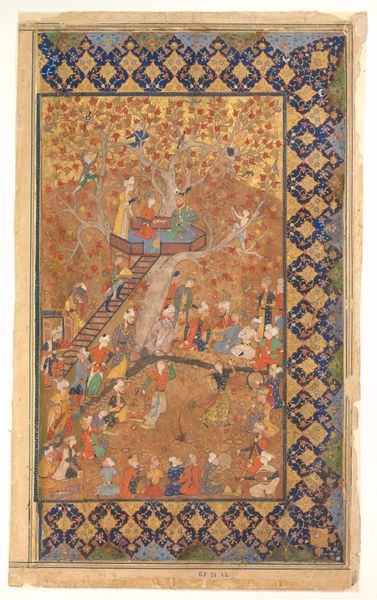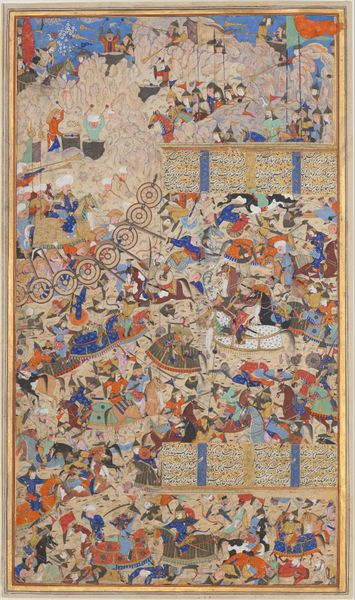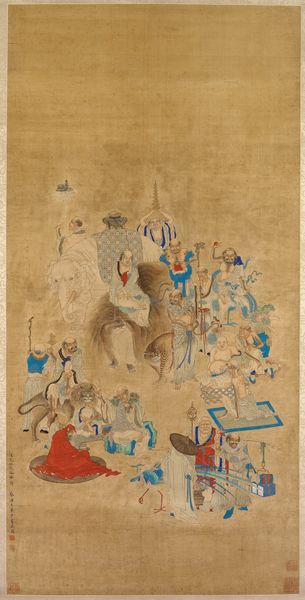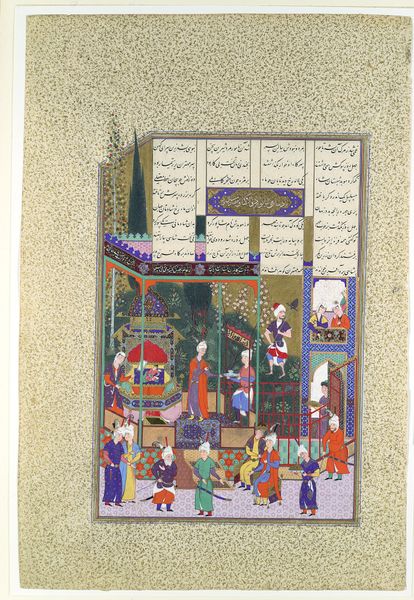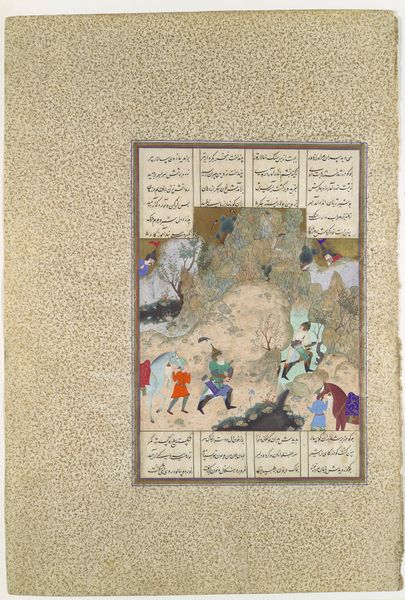
"Faridun Embraces Manuchihr", Folio 59v from the Shahnama (Book of Kings) of Shah Tahmasp 1500 - 1550
0:00
0:00
painting, watercolor, ink
#
portrait
#
water colours
#
narrative-art
#
painting
#
figuration
#
watercolor
#
ink
#
geometric
#
horse
#
islamic-art
#
history-painting
#
miniature
Dimensions: Painting: H. 11 1/16 in. (28.1 cm) W. 7 1/4 in. (18.4 cm) Page: H. 18 9/16 in. (47.1 cm) W. 12 7/16 in. (31.6 cm) Mat: H. 22 in. (55.9 cm) W. 16 in. (40.6 cm)
Copyright: Public Domain
This page, from the Shahnama of Shah Tahmasp, made around 1530, depicts Faridun embracing his grandson Manuchihr. Note the embrace, a powerful motif resonating through time. In antiquity, we see figures in funerary art clasped in similar fashion, signaling the connection between life and death, and continuity in kinship. The embrace transcends mere affection, becoming a potent symbol of legitimacy and succession. Consider, too, the recurring motif of the ruler on horseback. Equestrian figures stretch back to antiquity, symbolizing power and control. This image conveys a sense of continuity, linking the present to the past through gestures of love, power, and dynastic ambition. The artist taps into our collective memory, evoking an emotional response tied to our subconscious understanding of these age-old symbols. This isn’t just illustration; it’s an engagement with cultural memory.
Comments
No comments
Be the first to comment and join the conversation on the ultimate creative platform.
